Posts by worldrelief
World Relief Rebrands Western Washington Locations
May 2, 2022
CONTACT:
Audrey Garden
audrey.garden@pinkston.co
571-405-1606
KENT, Wash. — World Relief announced this week a rebrand for its office locations in Seattle and Bellingham to World Relief Western Washington (WRWW). With an expansion to Whatcom County last year and the expected addition of a Thurston County location this year, the refugee resettlement and immigrant services agency updated its name to reflect its regional impact.
“This expansion not only provides the opportunity for more communities to welcome new neighbors, but it also gives us the opportunity as World Relief Western Washington to build capacity through our long-standing expertise in resettlement and welcoming families and individuals,” said World Relief Western Washington Executive Director Medard Ngueita.
The new branding includes the launch of a new logo and website: worldrelief.org/western-wa. World Relief Western Washington is holding a virtual town hall on Thursday, May 5, at 7:00 p.m. PDT to share about the vision behind the new name and how services are expanding. Registration for the virtual town hall is accessible via: worldrelief.org/western-wa/events.
As the largest refugee resettlement and immigrant services organization in Western Washington, WRWW has served more than 40,000 refugees, immigrants, and asylees since 1979 and activates and empowers community partners to participate in building a welcoming community for newcomers. By 2023, WRWW plans to serve over 10,000 immigrants and refugees per year through a suite of comprehensive wraparound services.
To download a PDF version of this press release, click here.
About World Relief Western Washington
Since 1979, World Relief Western Washington has worked alongside the community to welcome refugees by following a philosophy of co-empowerment, collaboration and contextualization. Founded in response to the needs of refugees fleeing wars in Southeast Asia, World Relief’s Seattle location grew to support refugees, asylees, asylum seekers and immigrants from all around the world as they rebuild a sense of home in Western Washington. World Relief Western Washington envisions every refugee and immigrant welcomed by community, rooted in community, and empowered for community.
Learn more at worldrelief.org/western-wa.
When Faith Leaders Join the Fight
Around the world, faith leaders are often trusted, respected and influential members of society. For decades, World Relief has seen the impact that working alongside faith leaders and communities can have in the face of natural and man-made disasters.
From the earliest days of the COVID-19 pandemic, we knew that the local church was uniquely positioned to support communities through this global disaster. However, it cannot be denied how challenging the pandemic has been for faith communities.
In Rwanda, frequent and serious lockdowns in the first year and a half of the pandemic prevented social and faith gatherings. Faith institutions were closed for months on end, rendering many faith leaders’ ministries and livelihoods a minefield to navigate.
At the same time, faith communities in many countries were largely left out of initial nation-wide responses to COVID-19, including vaccination rollouts. And yet, research has shown that religious factors are the third most frequently cited reason for vaccine hesitancy globally, making involvement of faith actors in COVID-19 vaccination efforts imperative.
Building on our existing work of empowering local churches to serve the most vulnerable, World Relief stepped in to fill these gaps.
Across the globe, we have equipped church leaders with prevention messages and, as vaccines became available, trusted information and training to help accurately inform conversations and decision making in congregations. What’s more, in places like Rwanda, we helped churches provide food and basic necessities to those most impacted by shutdowns.
Together, even as doors closed on church buildings, we were able to support pastors and churches to continue being the church during this crucial time of response. — mobilizing faith communities to care for the vulnerable in the fight against the virus.
Putting the Right Tools in the Right Hands
In Malawi, DR Congo, Kenya and Rwanda, much of our work to engage faith leaders and their communities in the fight against COVID-19 is happening in partnership with USAID through the SCOPE COVID-19 project.
Through SCOPE COVID-19, we have created and organized trainings for faith and community leaders on how to engage faith communities in dialogues promoting COVID prevention and vaccination. These trainings use story-based curriculum created by World Relief and designed to put trusted information in the hands of community and faith leaders.
Access to accurate and updated COVID-19 information has been especially important for people like Uwambajimana Marie Claire in Rwanda. As a prayer leader in her local church, she knew that people were looking to her for guidance on vaccines. “If I could not accept the vaccine,” she said, “no one in the group would accept it.”
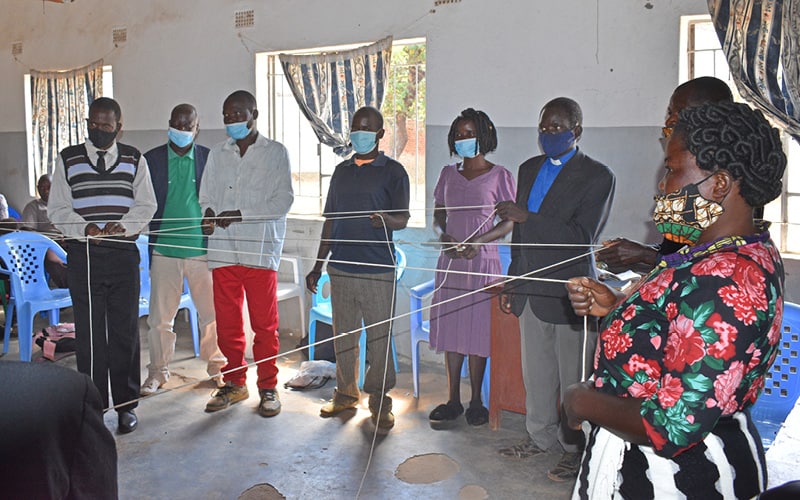
As in many places around the world, Marie Claire had heard frightening rumors about the COVID-19 vaccine. Distrust of the vaccine ran deep in her community, and she wanted to find out the truth. So Marie Claire prayed that God would reveal to her what was true.
When she participated in World Relief’s SCOPE COVID-19 training session on Risk Communication and Community Engagement, Marie Claire found answers to her prayer and to her questions about the vaccine.
“During the training,” Marie Claire said, “I heard that to fight against the pandemic, the vaccine is crucial. After hearing examples of many past pandemics that ended, resulting from vaccinations, and hearing the testimony of other believers who were vaccinated, I realized that I was headed in the wrong direction.”
Marie Claire decided to get vaccinated, and now she’s encouraging others in her community to join the fight against COVID-19 by getting vaccinated, too.
The World Relief COVID-19 curriculum used to train people like Marie Claire has been so successful at mobilizing faith communities at both the local and national level against COVID-19 that it has been adopted by the ministries of health in Kenya and Rwanda to be used by other partners throughout the countries.
Multiplying Faith Leader Impact
World Relief is currently working closely with over 11,230 local faith leaders through SCOPE COVID-19. As these leaders are equipped with accurate information, they’re driving conversations about COVID-19 in their communities.
Some leaders are leveraging regular radio talk shows and have reached an estimated 11,342,732 people across four countries so far. Others incorporate reliable prevention and vaccine information into faith gatherings or visit members of their communities door-to-door to share information and provide guidance.
Many congregants are reporting that the example of their faith leaders is building their confidence in the effectiveness of prevention measures and the safety of COVID-19 vaccines.
This is especially making an impact on vaccine uptake in these communities. To date, World Relief has directly supported the administration of vaccines to 241,590 individuals through SCOPE COVID-19.
One World Relief Rwanda volunteer shared that when vaccines first became available, they couldn’t find a single person in their faith community willing to get vaccinated. “[But] since faith leaders got involved,” they said, “it’s a different story. The church engagement in this fight has obviously made a tremendous impact.”
Leading the Way in Faith
Today, we are continuing to press forward alongside faith leaders in the fight against COVID-19 in Sub-Saharan Africa. Through SCOPE COVID-19, we’ve seen once again that faith leaders — when engaged consistently and intentionally at the national and local levels — can and will help their communities meet the needs of the most vulnerable.
Even as vaccination rates increase, the residual effects of COVID-19 remain devastating and the need for local communities of faith to act in love and mercy towards their neighbors remains high. At World Relief, we remain committed to equipping faith leaders around the world to lead their communities towards health, restoration and transformation.
Read more about our global response to COVID-19 and how you can help us care for those most affected by the pandemic.
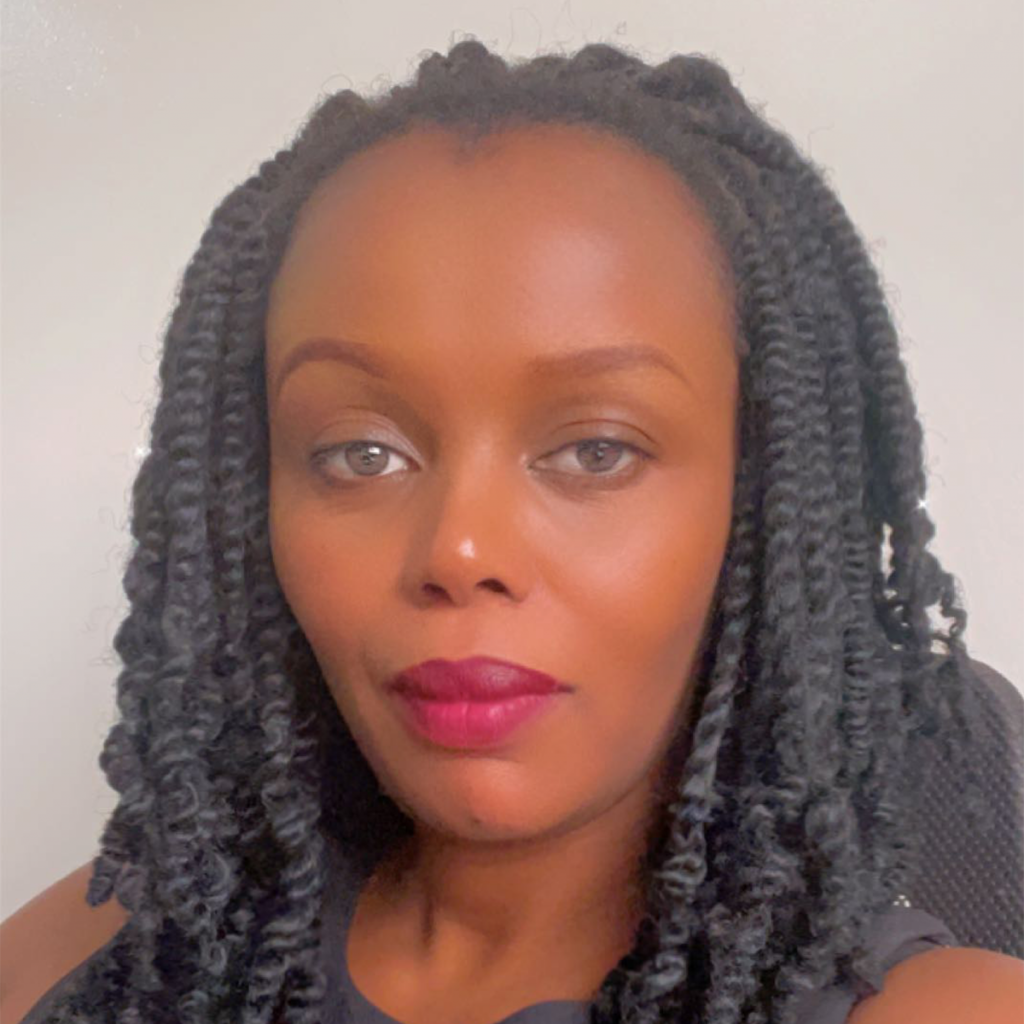
Sonia Karibagiza is a Rwandan Communications Specialist with 10 years of technical experience. She is passionate about educating the public and ensuring their safety. Since the beginning of the COVID-19 outbreak, she has been responding as a part of various teams implementing communication strategy under the Rwanda Joint Task Force on COVID-19, including managing World Relief’s SCOPE COVID-19 project in partnership with USAID until February 2022. As the project manager, she coordinated engagement of local leaders, health actors and faith leaders.
Stewarding God’s Grace: Q&A with Andrea Sheldon Tshihamba
“Each of you should use whatever gift you have received to serve others, as faithful stewards of God’s grace in its various forms.”
— 1 Peter 4:10
When Andrea first arrived in Durham with her husband four years ago, she left behind a career as an ESL teacher. Burnt out and looking to apply her energies to other outlets, she discovered World Relief Durham through a friend of her husband’s. Andrea felt called to help.
At first, she was not looking to resume her ESL teaching. After spending time getting to know people within World Relief, Andrea was assigned to be a friendship partner to a family of new arrivals from Afghanistan.
“I was asked to accompany a now-former World Relief employee to visit two Afghan families – brothers, wives and nine kids all in one apartment,” Andrea said. “They told me their biggest need was for their wives to learn English.”
Upon hearing this, Andrea felt as though God was speaking directly to her through this family and challenging her.
“At the time, I was not currently teaching English and wasn’t planning on changing that, but I couldn’t stop myself from agreeing,” Andrea said. “Immediately, it became clear that this opportunity was a gift from God. I asked myself, ‘why was I not using what I knew how to do?’”
In rising to God’s challenge, Andrea has seen her community unite alongside her in leveraging talents and passions to serve. Now, as she works to mobilize other volunteers from her church she sees the immense impact World Relief has daily.
“You’re the first friendly face a new arrival sees in a place so different from where they came, and that’s a meaningful thing that they can hang on to when it’s hard and feel different,” Andrea said. “People are sometimes unkind. So, trying to love, lead and be friends with people arriving is a transformational act both for those arriving and those extending God’s love. It is an essential pillar of our faith and in being a good person in general.”
This week, as we celebrate and observe National Volunteer Appreciation Week, we’re excited to share more of Andrea’s story with you.
Tell us more about how you got connected to World Relief.
Before moving to Durham, I was an ESL teacher and worked with immigrants in class.
When I moved here, I wasn’t looking to teach ESL. I wanted to help refugees in other ways, and I was already comfortable working with people with the lowest level of English. Dave (Andrea’s pastor) pointed me to World Relief.
He paired me with a friendship partner, which was very difficult – the woman was older, and she had dementia which was unknown at the time. But it was a good learning experience. Next, I was then partnered with a 14-year-old girl from the Democratic Republic of Congo. [She had been] displaced to Kenya, and then arrived in the U.S. when she was in 4th or 5th grade.
The young girl had some learning deficits and posed a challenge. There have been periods when I’ve seen her multiple times a week when she needed more support. I would pick her up from school, grab a bite to eat, then work on vocabulary and tutoring.
Through this, I feel like I now have a close relationship with her family. I became close enough to go to her school with her mom and contact the teachers. We also have fun together. I will never forget when she said to me once, “You’re so much more than a teacher.” I’m sort of like the fun aunt in the family. She’s obsessed with K-pop, so I know all this stuff about K-pop.
How have you seen the community impacted by welcoming refugees?
There is an inherent joy in serving and connecting with people new to the community and from different backgrounds and cultures. That joy is transformational.
A few years ago, I was asked to accompany a now-former World Relief employee to visit two Afghan families – brothers, wives and nine kids all in one apartment at first. Eventually, they were able to rent the apartment adjacent.
They told me their most significant need was for their wives to learn English. At the time, I was not teaching English and wasn’t planning on changing that, but I agreed. Immediately, it became clear that this opportunity was a gift from God. I asked myself, ‘why was I not using what I knew how to do?’
For someone interested in getting involved with World Relief, what would you tell them?
I feel my faith tells me to get involved. There are so many passages in the Old Testament that command us to welcome foreigners. World Relief is a great entry point if this is put on your heart through your faith. It’s both a gift and a calling.
World Relief is the access point for us to reach out and impact. I’m always waiting for World Relief to call me and say, ‘we have a family arriving!’ I’ve realized that I have a gift of mobilizing people and getting them to join me on my mission – our mission. It’s what I love to do.
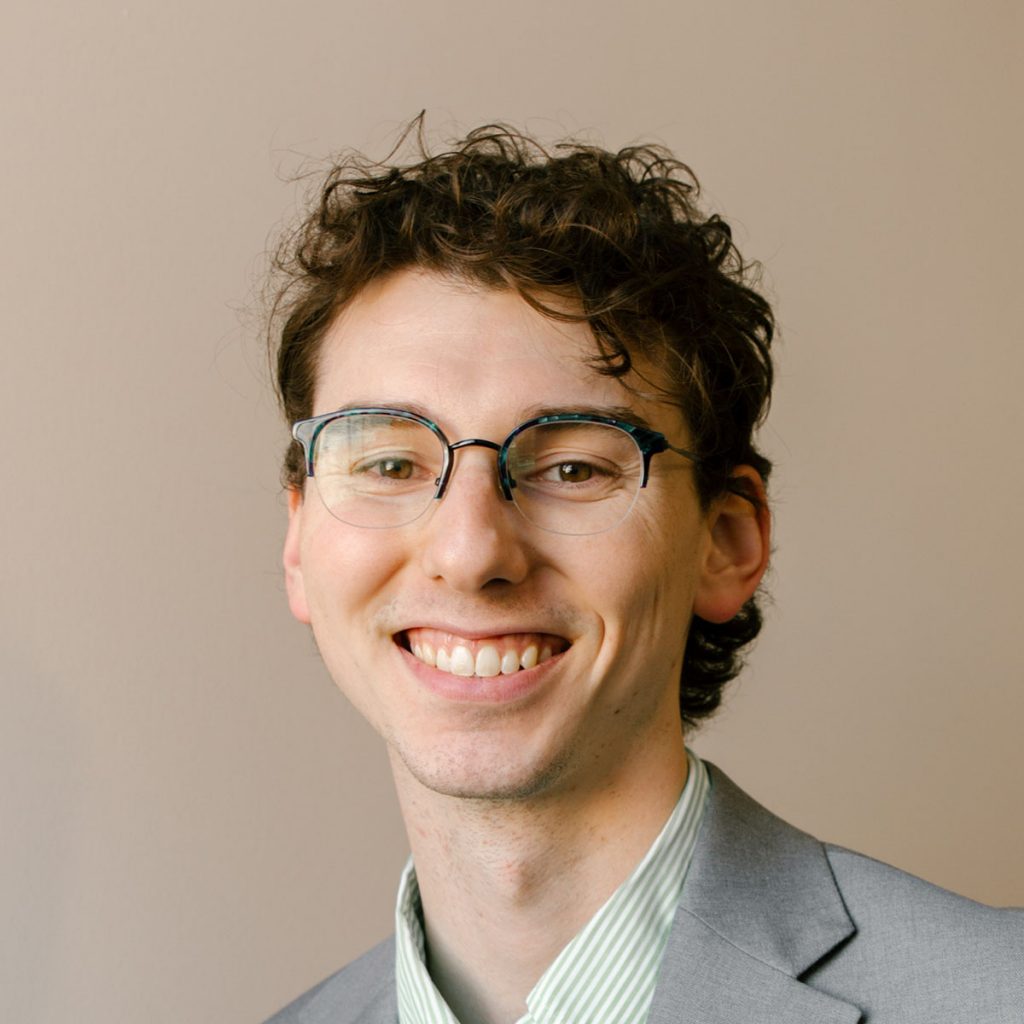
Nathan Spencer is a former Communications Intern for World Relief Memphis. A recent graduate of the University of Memphis, Nathan continues to volunteer for World Relief as a copywriter.
From Welcomed to Welcomer
At the end of April, World Relief will celebrate National Volunteer Appreciation Week, a time to recognize the impact and power of volunteers to “tackle society’s greatest challenges, build stronger communities and be a force that transforms the world.”
Last year, World Relief engaged 8,430 volunteers and 873 church partners in the U.S. to welcome and walk alongside their refugee and immigrant neighbors. Today, Todun Afolabi, World Relief’s U.S. Volunteer Engagement Manager, shares her own journey from welcomed to welcomer.
The Ministry of Welcoming
When I think about God’s heart for welcoming strangers, I think of Ruth and Naomi’s story in the Bible.
Naomi was the mother of Mahlon, Ruth’s first husband. Naomi’s family had traveled to Moab because of famine in Judah. While displaced from their homeland, Mahlon met and married Ruth, a Moabite. But when Mahlon and his father died, Ruth and Naomi returned to Judah as widows.
Naomi knew what it was like to be a stranger in a foreign land, and she was instrumental in helping Ruth resettle in Judah. She showed her how to secure food and, eventually, even connected her with her future husband, Boaz. Through Naomi’s care and advice, Ruth was able to establish a new home.
Needing a Naomi
For me, welcoming newcomers is ministry — and it’s personal.
When I was a stranger in a foreign land, there were many “Naomis” who spoke into my life and helped me adjust to my new home. I’ve learned that you can’t downplay the role of God in your life, especially in how he connects people and brings them together.
In 2011, my husband and I came to the U.S. from Nigeria as newlywed graduate students. As a couple, we couldn’t stay on campus, so we found a small apartment. At the time, we didn’t have enough money for furniture. We were just glad to have a roof over our heads.
We soon started attending a local church, and one of the pastors asked how we were adjusting and if we needed anything. I was hesitant to acknowledge how little we had and how far from home we felt, but we couldn’t hide our needs.
Later that week, I was amazed when the pastor called and asked if we were home. Within minutes, this truck drove up with chairs, a table, a dining room set — everything needed to make the apartment into a home for us.
That was the first of many ways the church surrounded us and helped us through our early years in the U.S. — and as a married couple! Our first car was donated to us by the church. They helped us cover rent expenses when money got a little too tight. When I got pregnant with our first child, they bought maternity and baby clothes and celebrated with us when our son was born.
I think God allowed me to experience the church’s welcome first-hand so I could understand how important it is. They showed us the heart of Christ. Now in my position at World Relief, that same heart motivates me to help others welcome newcomers the way I was welcomed.
Becoming a Naomi
When I joined World Relief as the Chicagoland Church and Volunteer Coordinator in Dupage-Aurora in 2018, it was an opportunity to become a Naomi for others.
I remember meeting a young woman who had recently arrived in the U.S. from Rwanda, and I was telling her my story — how I came and what had happened in my life since. She told me, “If you can do it, then I can,” and I said, “Yes! It’s possible. It’s really possible!”
It’s powerful to see that lightbulb go off, to see the encouragement and the hope that comes when someone realizes that they can do this — and that they don’t have to do it alone. That’s why I’m so passionate about helping the welcomers know and express the heart of God for strangers.
I wanted to keep bridging the gap between churches, volunteers and newcomers not just in Chicagoland, but across the country. In 2021, I transitioned to a role with World Relief’s Home Office as the U.S. Mobilization Specialist and now, I’m the U.S. Volunteer Engagement Manager.
In each of these roles, I’ve seen the mutual transformation that happens when churches and volunteers work together with their newcomer neighbors to welcome them — just like I was welcomed.
Welcome is for Everyone
At World Relief, we want to make room for everyone to be a part of welcoming newcomers, and I’m especially excited to invite those who have immigrant stories like me to volunteer with us. We can play an important role in being Naomis to our new neighbors, helping them adjust and adapt, just like we did.
It was a Naomi in my life who introduced me to volunteering. I started helping at a local food pantry and discovered that it was a good way to give back, but also an opportunity for me to build relationships and integrate. I realized it was a way for me, as an immigrant, to say, “This is my community now, too.”
I’ve learned that — whether you’re an immigrant, refugee, asylum seeker, a church partner or anyone else in the community — you have something to give. Even if it’s an hour a week or giving someone a ride to an appointment, those things really have an impact. I know because they had an impact on me!
Volunteering is where we get to bridge the gap between the heart of Christ and the needs of our community.
I look at my experience and see God’s hand in all of it — in the way I was welcomed and the way I now get to help others welcome. I’m grateful for this ministry God has given us at World Relief, and I’m grateful to have churches, volunteers, neighbors and people like you ministering together with me.
Do you want to create lasting change alongside passionate, mission-driven coworkers like Todun? World Relief is growing our team to meet the increased needs of our world, and we’re looking for people like you to join us.

Todun Afolabi joined World Relief in 2018 and currently serves as the US Volunteer Engagement Manager. With a background in law, she is passionate about humanitarian efforts and engaging communities in their stories of change.
World Relief Applauds Announcement by the Centers for Disease Control (CDC) To End Title 42, Calls For Functional and Orderly Asylum System Process
April 4, 2022
CONTACT:
Audrey Garden
audrey.garden@pinkston.co
571-405-1606
BALTIMORE – On Friday, the CDC announced that on May 23, it will end Title 42, a policy implemented in March 2020 that allows officials to turn away migrants at the U.S.-Mexico border even if they are seeking asylum. World Relief applauds the ending of Title 42 as it will be an important step forward to establishing a functional, orderly and efficient asylum process so those fleeing conflict and violence can find safety in the United States.
“Title 42 is a pandemic-era public health policy first applied by the Trump administration and continued by the Biden administration. It has meant that the U.S. Department of Homeland Security has expelled asylum seekers without a hearing. Ostensibly, the policy has been designed to protect public health; in reality, it has long been clear that the policy was being used to simply ignore our country’s asylum laws,” said Matthew Soerens, World Relief U.S. director of church mobilization and advocacy. “We should never use public health as a pretense to deprive asylum seekers of their legal right to due process. Asylum seekers, by definition, profess to fear persecution if returned to their country of origin, and it’s vital that the U.S. government respect our nation’s laws designed to protect human life by ensuring no one is returned without a fair process to determine if they qualify to stay lawfully in the U.S.”
World Relief believes the United States can balance its responsibility to provide border security and due process for vulnerable people seeking asylum and protection. Therefore, U.S. officials need to uphold their legal and moral commitment not to return people to danger.
“While not everyone who shows up at the U.S. border is fleeing a credible threat of violence, persecution or conflict, and not every asylum seeker qualifies under U.S. law to be granted asylum, we must honor our nation’s moral and legal commitments to those fleeing persecution by providing them with their legal right to have their asylum claims heard,” said Myal Greene, president and CEO of World Relief.
To learn more about how you can advocate, visit https://worldrelief.org.
To download a PDF version of this press release, click here.
About World Relief
World Relief is a global Christian humanitarian organization that brings sustainable solutions to the world’s greatest problems – disasters, extreme poverty, violence, oppression, and mass displacement. For over 75 years, we’ve partnered with churches and community leaders in the U.S. and abroad to bring hope, healing and transformation to the most vulnerable.
Learn more at worldrelief.org.
Who’s Really Welcome? Our Compassion for Ukrainians Shouldn’t be Exclusive to Just Them
Global Support for Ukraine
Last week, the White House announced a plan to admit up to 100,000 Ukrainian refugees to the United States. This was a welcomed announcement given the increasing numbers of Ukrainians arriving to Poland, Romania and other European nations.
This policy has been one of many successive policy decisions by President Biden to show solidarity and support to the Ukrainian people, including granting Temporary Protected Status (TPS) to Ukrainians who were already living in the U.S.
At World Relief, we celebrate these policy decisions and commend the global outpouring of support for Ukrainians who have been displaced by war.
In Romania, people have come together to set up mobile camps with tents, beds and electricity to house and care for Ukrainians who have crossed the border into their country. Similarly, Poland has received more than 2 million Ukrainian refugees into their country and is looking for ways to provide some sort of legal status for them to remain in Poland.
And yet, we still hope for more.
Not only do we want there to see a peaceful resolution to the conflict in Ukraine and for people to safely return home, but we also want to see greater solidarity shown for other people who have been displaced by the injustices of war and conflict but who are not receiving equal amounts of the world’s attention.
The Worst Humanitarian Crisis Since WWII
Before the conflict in Ukraine, the world was already facing the worst displacement crisis since World War II.
Women and men from places like the Democratic Republic of the Congo, Syria, Afghanistan and Honduras have been experiencing displacement for decades. Many seek refuge in neighboring countries but are often turned away at the border, facing scorn and disdain rather than welcome and assistance.
As I’ve read the news over the last few weeks, I’ve often wondered — what would Americans do if millions of people arrived at our borders? How would we respond?
Would our government commit to recognizing the protection needs of those fleeing conflict and provide legal status for those seeking safety? Would American citizens support that decision? Would our churches and communities be ready and willing to show up at train stations with blankets, strollers and other necessary supplies?
Truthfully, we know the answer. Similar situations have happened in our country before, and are still happening now.
The U.S. Response to Refugees and Asylum Seekers
Just this past fall, 16,000 women, men and children — mostly from Haiti — set up camp under a bridge near Del Rio, Texas, hoping to seek asylum in the U.S. Many of these families and individuals have since been returned to the countries and dangerous situations from which they fled.
Additionally, thousands of individuals from Honduras, Guatemala and El Salvador have fled conflict and violence in their home countries only to be turned away from the U.S. border under the guise of Title 42.
Title 42 is a public health order that has prevented legitimate asylum seekers from finding protection in the United States due to public health concerns around the spread of COVID-19. Nevertheless, the President opted to exempt Ukrainians from this public health order, allowing Ukrainians to cross into the United States to find safety while others are still being turned away.
At World Relief, we have often said that compassion and security need not be mutually exclusive, and that belief holds true today. While the situation in Ukraine may seem different because one sovereign nation is invading another sovereign nation, the consequences of vulnerability are the same.
When people feel unsafe in their homes and their own governments are not able or are unwilling to protect them, they are forced to flee and need to be afforded equal protection and processes according to international law.
What’s more, our own personal attitudes of welcome and hospitality should not change based on someone’s country of origin or the reasons for which they have fled.
Whether someone is from Ukraine, Sudan, Democratic Republic of the Congo, Afghanistan or Burma, our welcome as followers of Jesus should be rooted in a radical hospitality that allows all those who experience violence suffering and war to find a place of peace and safety wherever they are.
Let’s Build Something New
The Russian invasion of Ukraine is just the latest in a series of wars and conflicts that have fueled the greatest global refugee crisis since at least World War II.
We need to rebuild a robust, nimble U.S. refugee resettlement and asylum processes that can welcome the persecuted from various parts of the world — including those who have fled similar conflicts to that in Ukraine but have garnered less media attention or been largely forgotten in the U.S.
This includes committing to resettle large numbers of vulnerable Afghans, Sudanese, Congolese and Burmese in addition to the 100,000 Ukrainian refugees the U.S. committed to accepting.
We must also ensure our asylum laws offer protections to those of any nationality who reach the U.S. and can demonstrate a credible fear of persecution. If the President can exempt Ukrainians from an outdated public health order that is turning away people at the border from seeking asylum, he can also rescind the rule so that anyone who seeks asylum can find protection in the United States, regardless of nationality.
For those of us who follow Jesus, we have a calling from Christ to lean into the brokenness of this world to offer a better way and an eternal hope. Jesus left all of his privilege to be with us who are broken and to reconcile the world to himself, and we must do the same.
We all long for solutions that will end the conflict in Ukraine. But perhaps the biggest difference we can make right now will happen in our own communities and in our own homes as we welcome refugees and asylum-seekers and extend hospitality to them.
Moving Forward with Compassion
As the spotlight eventually fades from Ukraine, and as other humanitarian crises inevitably arise, my hope is that the solidarity and support we have shown for Ukrainians will extend to others who are facing similar circumstances.
I hope that the church will not grow weary of doing good. We, as global citizens, are coalescing around common support for the people of Ukraine, and I hope this will also translate into care and concern for refugees and asylum seekers everywhere — especially those that are arriving at our own borders — regardless of where they come from.
Refugees, no matter where they’re from, are people. They are mothers, fathers, sons and daughters grieving the loss of their home and searching for a safe place to rebuild their futures. We are called to respond to all those who are suffering the consequences of violence, political upheaval, poverty and more.
Together, we can respond with compassion, joining hands with those who have experienced displacement and working together to build a better world.
Learn more about how you can support refugee and displaced communities here in the u.s and across the globe.

Jenny Yang is the Senior Vice President of Advocacy and Policy at World Relief where she provides oversight for all advocacy initiatives and policy positions for the organization and leads the organization’s public relations efforts. In this position, she coordinates and leads the marketing, programs, and strategic engagement division teams on media relations, public engagement and brand elevation strategies. She also represents the organization’s advocacy priorities to the U.S. government and leads mobilization efforts for churches on advocacy campaigns. She has worked over a decade in refugee protection, immigration policy, and human rights and was on an active deployment roster for the United Nations High Commissioner for Refugees. Previous to World Relief, she worked at one of the largest political consulting companies in Maryland. Jenny is co-author of “Welcoming the Stranger: Justice, Compassion and Truth in the Immigration Debate” and contributing author to three other books. Jenny was named one of the “50 Women to Watch” by Christianity Today.
The Compounding Effects of COVID-19 on Women and Girls
“The impacts of crises are never gender-neutral, and COVID-19 is no exception.”
– UN Women
A Pre-Pandemic Issue
While the pandemic has touched nearly every corner of the globe, the devastating impacts of COVID-19 on women and children cannot be overstated.
Before the pandemic, women already earned less, had access to fewer social protections and made up most single-parent households. The direct and indirect impacts of COVID-19 have only exacerbated all of these issues — livelihood, access to good healthcare and education and community support in parenting.
Women have disproportionately suffered the socio-economic impacts of COVID-19 as a result of job losses, reduced hours, increased pressures of care and domestic work, and strains on both physical and mental health.
Twenty-nine percent of mothers living with children lost their jobs compared to 20 percent of men living with children. In the area of physical and mental health, women are more likely to report strained health with 71 percent of women aged 18–24 compared to 59 percent of young men.
Likewise, the majority of primary caregivers both in the home and within our communities are women, which has put them at greater risk of COVID infection and/or disruption of livelihood.
Violence Against Women Has Increased
Prior to the pandemic, steadier streams of income and freedom to leave home may have decreased domestic violence, but the results of economic tension and poor mental health during this pandemic have led to devastating consequences for women and children who live in constant close contact with violent partners and caregivers.
Gender-based violence, sometimes referred to as violence against women or intimate-partner violence, has been a global issue for centuries. Even before the pandemic, the UN reported that 35% of women around the world have experienced physical or sexual violence — that’s 1 in 3 women! These are women here in the U.S. and women in the countries where we work overseas.
Early on in the pandemic, it became clear that sexual and gender-based violence was increasing due to COVID-19 — a shadow pandemic was emerging.
Emerging data and reports from those on the front lines have shown that all types of violence against women and girls, particularly domestic violence, have intensified since the pandemic began. Domestic violence helplines and shelters began reporting a spike in calls for help just months into the pandemic. This spike has continued to rise.
What’s more, child marriages are increasing after years of decline, with a projected 10 million additional girls at risk due to COVID-19 over the next decade. The reasons for this are many, including the fact that families need the extra money; having one less child in the house is one less person to feed. UNESCO has even reported that 11 million girls may never go back to school as a result of disrupted education caused by COVID-19.
Is There Hope?
While the facts are devastating, there is hope and a way forward.
Throughout the pandemic, we, at World Relief, have watched with great wonder and encouragement at how adaptable our programs have been to withstand the constraints of COVID-19. Our ability to address sexual and gender-based violence and issues of child protection have been no exception.
For example, our community-based couples-strengthening program called Families for Life enabled us to check in on households that were vulnerable to increased gender-based violence.
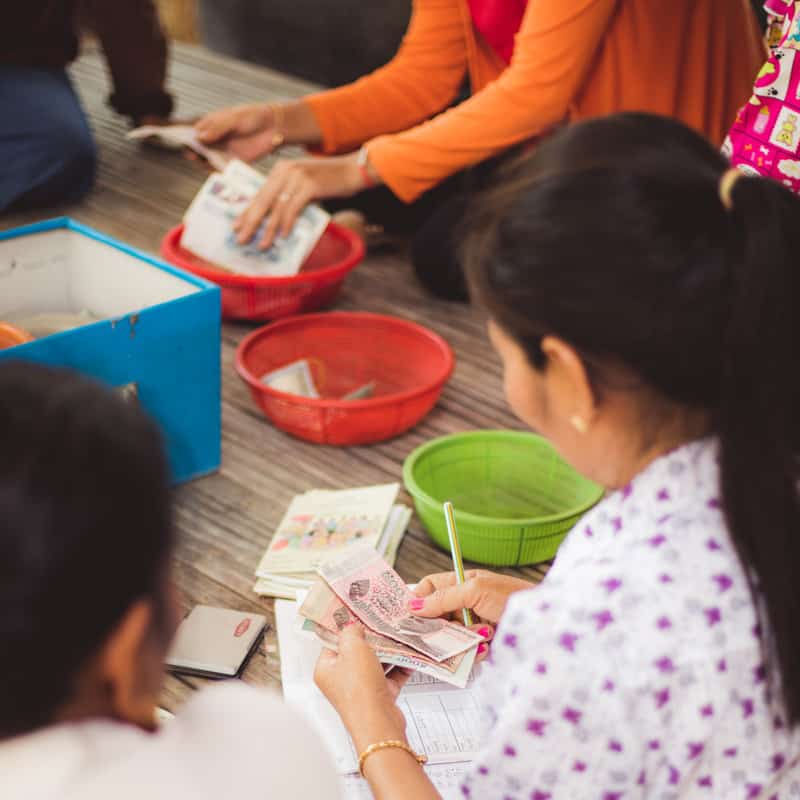
Families for Life (FFL) is a unique program that World Relief developed and began implementing in 2011. FFL Groups are led by local couples who have been trained by World Relief and have a vested interest in seeing their neighbors experience healthy and thriving relationships.
During the pandemic, we were able to connect with these group leaders periodically via phone calls to encourage and equip them in how to safely continue investing in the couples they were already reaching out to pre-pandemic. They were even able to host socially distanced, in-person trainings on COVID-19 prevention in addition to helping couples navigate conflict in the home.
On the economic side, our savings groups were also able to find innovative ways to continue meeting — whether outside or socially distanced or in smaller groups. These groups, which are made up mostly of women, became a real source of stability amidst a time of incredible instability.
Likewise, economics and root issues of poverty are often the primary drivers for early marriage. Strengthening families through economic projects like savings groups is one way we’re working to prevent child marriage.
Additionally, we’ve been diligently working to build holistic child protection systems that create protective environments for early adolescents and teens, even before the pandemic. This included early adolescent and adolescent clubs, which equip and empower children and adults that are in a child’s circle of influence to understand how to prevent early marriage.
By establishing this kind of protective environment, we can prevent abuse, neglect, exploitation and violence, even amidst such trying circumstances as a COVID-19 pandemic and beyond.
Looking Forward
COVID-19 has taken a magnifying glass and illuminated issues that were already in existence and will remain in existence once the pandemic has ended. The pandemic has also shown how women carry much of the burden.
At World Relief, knowing that issues of gender inequality and injustice will continue even once some normalcy arrives post-COVID, we remain steady in our commitment to integrate gender equality into all levels of our programming.
Women’s agency, dignity, opportunity and empowerment come not just from technical programs, but from a deep, internal community understanding and drive for each and every one of their community members — men and women, boys and girls — to reach their full, God-given potential.
A pandemic has not altered this truth nor has it altered our resolve to build a more gender-equal world.
Much of this article has been adapted from a recent report by World Relief on the impacts of COVID-19 on global poverty. Read the full report and give today to support women and girls in the wake of COVID-19.
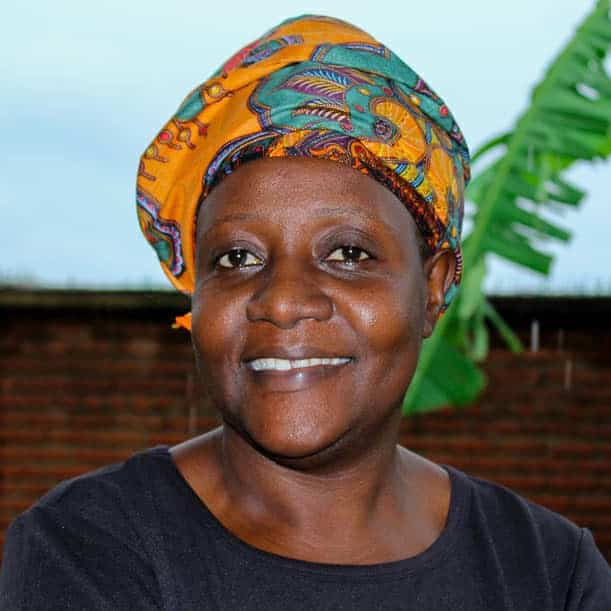
Veronica Kaitano serves as the Gender Equality Social Inclusion Technical Advisor with the World Relief’s Programs Resources Team. Through her work, Veronica supports World Relief’s country offices in ensuring the integration of a gender and social inclusion approach within programming and acts as the global technical lead for supporting implementation and continued growth of World Relief’s couple strengthening model Families for Life, with a specific emphasis on disability inclusion.
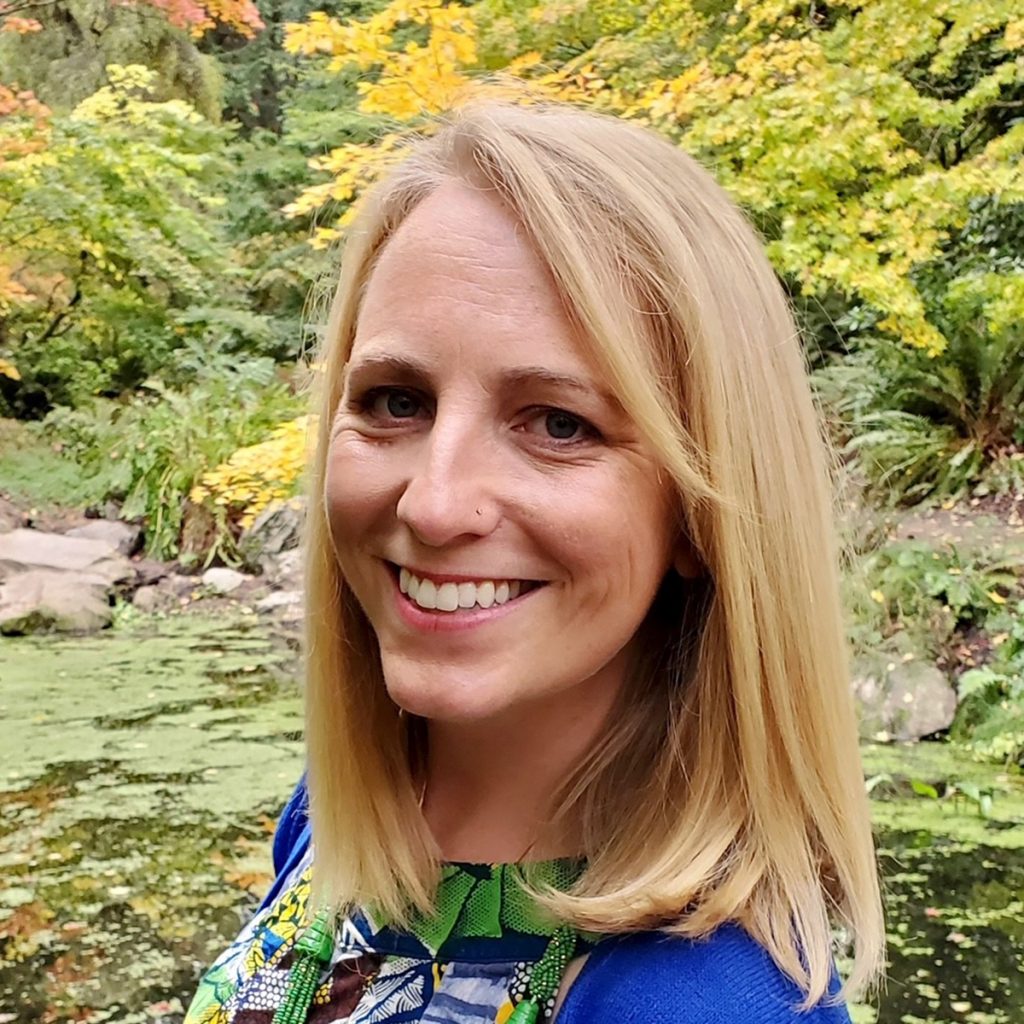
Krystel Mumba is Program Advisor for Child Development & Protection with International Programs at World Relief. Over the last 16 years she has worked in child-focused programming around holistic prevention, intervention and rehabilitation for vulnerable children, but is especially passionate about innovative programming that centers young people as active agents of change — that empowers children and youth to thrive in their families, communities and spheres of influence. Krystel holds a Master’s degree in Cross-Cultural Studies, International Development and Children-at-Risk from Fuller Theological Seminary. Although she has called many places around the world home, she is currently rooted in Seattle, WA with her husband Chitalu.
World Relief Welcomes Announcement of Ukrainian Refugee Resettlement and Humanitarian Assistance, Urges Broader Welcome
March 24, 2022
CONTACT:
Audrey Garden
audrey.garden@pinkston.co
571-405-1606
BALTIMORE – Today, President Biden announced a plan to admit as many as 100,000 Ukrainians to the United States as refugees and through other means. In addition, the United States is committing to provide more than $1 billion in new funding towards humanitarian assistance for those affected by Russia’s war in Ukraine and its impacts around the world. World Relief welcomes this announcement of additional humanitarian aid and is eager to welcome more Ukrainians to the United States, while also insisting that the U.S. should also welcome a larger number of refugees fleeing other conflicts globally.
“Prior to the Russian invasion last month, World Relief had already resettled more than 7,300 Ukrainians in the past decade, roughly 40 percent of all Ukrainians admitted to the U.S. as refugees during that time,” observed Myal Greene, president and CEO of World Relief. “We are in close contact with many of these individuals, almost all of whom have loved ones now at risk in Ukraine, and we’re grateful that President Biden’s announcement today seems to open up the likelihood of expedited family reunification and other avenues of protection. We are ready to welcome them, in partnership with local churches and other community partners.”
World Relief is also actively responding to the crisis in Europe, working with local churches and other partners both in Western Ukraine and in Slovakia, Romania, Moldova, Poland, and Hungary to provide immediate humanitarian assistance to Ukrainians who were forced to flee to neighboring countries or are in need of immediate assistance in Ukraine.
“The additional funding provided by the United States will help meet the immediate humanitarian needs of vulnerable Ukrainians who are bearing the brunt of war. We urge the international community to continue to provide humanitarian assistance as generously as possible to vulnerable Ukrainians and ensure there can be humanitarian corridors for civilians to be able to safely leave Ukraine or for aid to reach those trapped inside Ukraine,” said Myal Greene. “Most Ukrainians who make the difficult decision to leave their homes are relatively safe in neighboring European countries, where most would prefer to stay, in part because they hope and pray to return soon to a safe, free Ukraine. But for those who have family in the U.S. or for whom voluntary repatriation is impossible, some may prefer the option of resettlement to the U.S., where we are also eager to welcome and support them as they replant their lives. A multi-pronged approach to this crisis, exploring every pathway of protection for those who can resettle to the United States, while also continuing to support Ukrainians who remain in the region, will be critical as the humanitarian needs climb in the months ahead.”
While pleased with the U.S. government’s intention to welcome a large number of Ukrainian refugees, World Relief is also concerned about refugees who have fled other conflicts. “The Russian invasion of Ukraine is just the latest in a series of wars and conflicts that have fueled the greatest global refugee crisis since at least World War II,” noted Jenny Yang, senior vice president of advocacy and policy for World Relief. “The Biden administration must rebuild the U.S. refugee resettlement program not only for Ukrainians, but also for those who have fled similar conflicts that have garnered less media attention or been largely forgotten in the U.S. — even though the conflicts continue and refugees remain in desperate conditions in neighboring countries for years and sometimes for decades.”
World Relief celebrated the president’s decision last fall to raise the annual ceiling for refugee admissions to 125,000, the highest level in decades. But it has become clear that, without dramatic U.S. government efforts to increase the pace and scale of overseas processing as well as sustained investments in the domestic resettlement infrastructure, the U.S. will resettle, at most, a small fraction of that goal this year. Five months into the federal fiscal year, the U.S. has admitted just 6,494 refugees, which does not include Afghans resettled through a separate process.
“We need to rebuild a robust, nimble resettlement process that can welcome the persecuted from various parts of the world, with a particular concern for those most vulnerable, who may have no safe neighboring country to which to flee. And we must also ensure our asylum laws offer protections to those of any nationality who reach the U.S. and can demonstrate a credible fear of persecution, rights that the Biden administration is currently denying to many who are not Ukrainian under the pretext of the COVID-19 pandemic,” said Yang.
As the president travels to Europe, World Relief urges the president to encourage and support Poland and neighboring countries to continue their welcome of Ukrainian and other refugees. World Relief also urges the international community to stand in solidarity with the Ukrainian people by providing ongoing humanitarian assistance and facilitating diplomatic solutions to resolve the conflict.
“We hope and pray that the Ukrainian people will know peace and security in the near future. And we call upon the global church to support the Ukrainian people, and others experiencing conflict, as robustly as possible,” said Myal Greene.
Individuals interested in supporting World Relief’s humanitarian response in and around Ukraine can find more information at worldrelief.org/respond, while those interested in supporting resettlement efforts within the U.S. can find a list of World Relief resettlement locations at worldrelief.org/us-locations.
To download a PDF version of this press release, click here.
About World Relief
World Relief is a global Christian humanitarian organization that brings sustainable solutions to the world’s greatest problems — disasters, extreme poverty, violence, oppression, and mass displacement. For over 75 years, we’ve partnered with churches and community leaders in the U.S. and abroad to bring hope, healing and transformation to the most vulnerable. Learn more at worldrelief.org.
Women and Men Leading Together
“So God created humankind in his own image,
in the image of God he created them;
male and female he created them.”
– Genesis 1:27
In the Beginning
In the beginning, God created — God separated the land from the sea; made plants and animals, fish and birds, men and women. When it was finished, God looked around at all that had been made and called it very good.
As a woman, I (Nancy), have sometimes struggled to understand what very good means for me. Like so many women across the world, I grew up in a society that viewed men as superior to women.
I was taught to believe that God was a man and that women were the cause of all the troubles and hardships that humans currently face because women sinned first.
In my work as a Monitoring & Evaluation Manager and Integral Mission Coordinator at World Relief Kenya, I often engage with pastoral communities who hold very strong beliefs about women and their positions in society. There have been times when I have felt like I am not good enough due to the way people have reacted to me and the directions I give them.
And yet, despite all this, God is at work.
God’s Vision for Gender Equality
I never dreamed that working at World Relief would transform the way I view myself and other women. But that’s what happened when, in 2021, my colleague James and I walked through a curriculum called Women and Men Leading Together. World Relief is currently rolling out this curriculum to a majority of its international programs staff.
This curriculum lays out a biblical foundation for gender equality by looking at five key points:
- Imago Dei – we are made in the image of God
- Patriarchal Cultures – how they harm both women and men
- Jesus’ Radical Example of Redemption and God’s Original Design for Marriage
- The importance of using rules of interpretation when reading scripture
- Organizational Leadership and countering gender inequality in the workplace
Over the course of eight weeks and seven learning sessions, we learned that men and women are created equally in the image of God, a concept often referred to as Imago Dei. And while men and women are two different expressions of God’s image, the authority to “practice dominion over all the earth” has been delegated to us equally.
We also gained a deeper understanding of the patriarchal cultures we live in, and how cultural norms can often trap both men and women into harmful gender stereotypes.
Culture often tells men that they must be the protector and provider and that they should be the opposite of women, never showing any emotion or gentleness. On the contrary, women are told they are weak, less than men and should yield all leadership and authority to men.
Both of these viewpoints, however, fall short of God’s desire for the freedom and flourishing that God intends for each one of us, regardless of our gender.
God’s Word is Powerful In Us
As we worked through the curriculum, I (James) gained an expanded understanding that everyone — women and men — are gifted and can serve in any capacity. A person should not be judged because of their gender, and everyone deserves equal respect. Jesus, himself, had women in his inner circles. He taught them and invited them into leadership alongside him.
The training helped me to be even more deliberate in being mindful of others, especially across the gender divide. We are all gifted and endowed, and we need to support one another.
The biblical references were very enlightening and helped me see that some of the arguments against gender equality that I had grappled with previously were based on a misinterpretation of scriptures. I now feel more equipped to advocate for gender fairness in the community, and I have the knowledge and basis needed to back up my viewpoint.
For me (Nancy), learning about the examples of powerful women in the Bible like Deborah, Esther, Ruth, Naomi and Priscilla was very encouraging in my faith. I am stronger and more confident and have begun stepping up to lead more in my local church and at my place of work.
The Holy Spirit revealed to me that I am a child of God, fearfully and wonderfully made in his image. I should not fear anything for God is always with me and will never forsake me. As Psalm 121 says, my help comes from God.
Carrying the Vision Forward
The transformation we have experienced and the understanding we’ve received has now given us the opportunity to teach and train others on our team, in preparation for incorporating more gender-equality work in our programming.
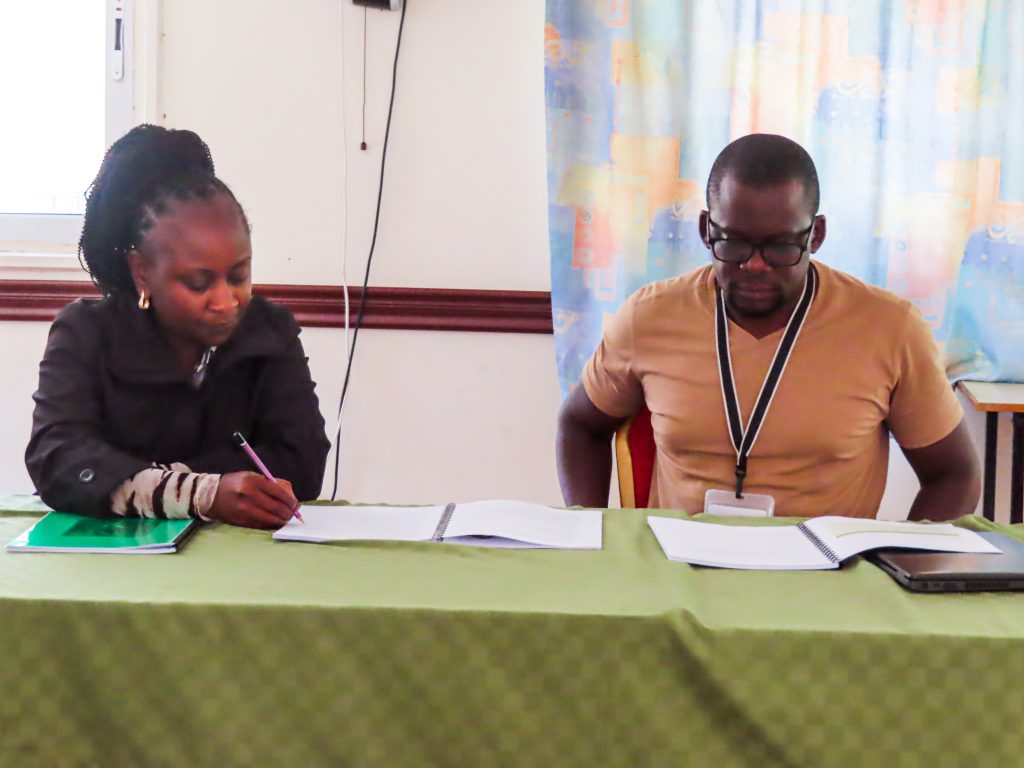
We have noticed that many women in our workplace, especially in our field offices, seem to lack the confidence God longs for them to have. They often stay silent or hesitate to address others in public settings. It is up to us as leaders to walk with these ladies, intentionally giving them roles in workshops as a way of building up their confidence as they grow.
Research from the World Economic Forum, Pew, Harvard Business Reviews and others have shown that organizations are more successful where women are equally represented in leadership.
Not only that, but elevating women in leadership and leading alongside one another as equals is a call to be counter-cultural. We get to follow Jesus’ example and counter the effects of gender bias in the workplace.
Men also have a very vital role to play in combatting gender inequality in the workplace. In most cases, gender authority and imbalance is in favor of men. Men, therefore, have to use their positions of authority to be the agents of change that are needed to create a gender-equal world. And men can begin this transformation by changing how they treat their wives, daughters and mothers right within their own homes.
As we, and others across World Relief’s global offices, continue to engage with this training, it is our hope that our fellow staff members, church partners and volunteers can approach this curriculum with an open mind, be willing to learn from what was God’s original intention at creation and adjust our actions accordingly.
In Kenya, we have already seen our entire staff team be more keen on reducing gender bias in our day-to-day work and conversations. Moving forward, we are committed to assessing our progress not just through our interactions with one another, but through our staffing and leadership structure, mainstreaming gender activities across all our programming, and working to ensure our policies and procedures align with our gender-inclusive vision.
We are grateful for the work that God is doing in us and among our team to bring healing and restoration to our world. God’s word is, indeed, more powerful through us because of the work the Spirit has done within us.
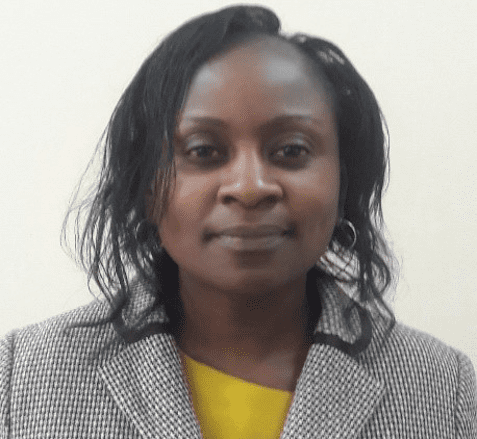
Nancy Nasirumbi Owola joined World Relief in 2017. She is a social entrepreneur with a passion for serving the most vulnerable through teaching business skills to those disadvantaged or underprivileged in the community. Nancy has worked in community development since 2006 and has also worked as a consultant, offering technical support to 20 Kenya Community Development Foundation partners in Value Chain Development & Enterprise Development. Her professional background includes entrepreneurship, monitoring & evaluation, business administration & management, and marketing. Today, she serves as the Integral Mission Coordinator as well as the M&E Evaluation Manager for World Relief Kenya.
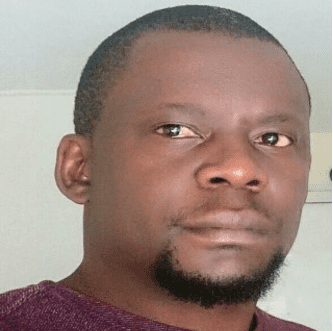
James Wanda joined World Relief Kenya in May 2020 as the SCOPE and National Health Manager. He graduated with a Bachelor of Science in Nursing from Moi University and has a Diploma in Project Management from Kenya Institute of Management. He is currently pursuing a Master’s Degree in Public Health at Jomo Kenyatta University of Agriculture and Technology. With more than 15 years of experience in public health programming, he’s worked with organizations such as The Walter Reed Project, Catholic Medical Mission Board, Jhpiego Kenya and AMREF. Prior to joining World Relief, he worked as a Project Manager and acting Executive Officer for Kenya Pediatric Association. James believes in justice and fairness to all and service to humanity is his call.
Women’s Empowerment Programming is Everywhere
When people ask us, “Where is World Relief’s women’s empowerment programming?” Our answer is: It’s everywhere.
Transforming how men and women live, relate and honor God in their relationships is at the very heart of what we do. We recognize that women and girls don’t exist in isolation. They live, they work and they go to school in community. And only with community transformation will gender reconciliation, empowerment and transformation truly occur.
While we have several programs that center around women — trauma-care groups for sexual and gender-based violence victims in DR Congo, maternal health programs for mothers and teen clubs for pre-adolescent girls — we incorporate the idea of gender equality into nearly all of our international development programming, starting at the belief level.
Today, I want to share two stories with you about a woman named Salina — one fictionalized, and one the truth. Salina’s story illustrates the power of World Relief’s gender-integrated approach and is proof that together, we can #breakthebias and create communities where women and girls can thrive.
Salina’s Story: What Often Happens
Salina is a young wife and mother living in Malawi. She decides to join a savings group and has great hope that this program will change her life. At first, she is encouraged by the community of women and the potential opportunity. But it’s not long before her husband, Chilaw, becomes resentful of the profitable women’s program.
When Salina takes home her savings, Chilaw takes her hard-earned money for himself and spends it frivolously. As a result, Salina is unable to invest in what she’d hoped — nutritious food for her children, health insurance and school fees. Her girl child, Charity, in particular, remains malnourished and uneducated.
Though Chilaw brings home produce from a local agricultural group, both parents prioritize food for their son over Charity. They sell the remaining produce at the market and send their son to school with their earnings, but Charity remains at home doing household chores. She has little awareness of her worth as a young woman and awaited the day when she’ll be married for a bride price and step into the same life her mother has had. Salina’s home is trapped in a vicious cycle of economic, social and relational poverty.
Now, let’s rewrite this story, and see what happens when World Relief’s gender-integrated approach is applied.
Salina’s True Story
In Salina’s real story, she hears about a savings group. She wants to join, but she’s afraid of what her husband might think. After all, he is the decision maker of the family. Nevertheless, World Relief hears of Salina’s interest and encourages her to join.
Simultaneously, a local church volunteer meets with Salina and her husband, Chilaw. They explore a transformative curriculum that teaches Chilaw about his wife’s inherent value and worth. He learns that she is also created in the image of God, deserving of love and respect and possessing a God-given potential that must be nurtured, honored and developed.
He encourages her to go to the local savings groups and when she saves money, they sit and talk together about how to use it along with the money Chilaw earns from selling his agricultural produce.
Salina and Chilaw also learn about the value of their daughter, Charity, and decide it’s time to send her to school with the money they’ve saved. Now that Charity is in school, World Relief encourages her to attend the local adolescent girls club. Chilaw thinks it’s important for his daughter’s wellbeing and development, so he also encourages her to go. Charity learns about the power of her education and the perils of early marriage and sets goals to go to university.
Can you spot the difference?
In both stories, savings, agriculture, nutrition and adolescent clubs are in place, yet only in the second of these stories do these programs have a restorative, transformational and generational impact on the lives of Salina and her family.
The real transformation comes mostly prior to the programmatic benefits — within the home, at the belief and value level. This is the power of our restorative gender work.
We know savings, agricultural and countless other technical programs work most effectively when they build upon the foundational work that has been done within the home, between husband and wife, parents and children.
That’s why, at World Relief we approach female empowerment at the belief level, starting with the family structure. We see the empowerment of women and girls happen not because our programming is exclusively focused on women and girls, but because we work to ensure the whole community recognizes and respects the voices, roles and unique gifts of these women and girls.
Our transformative curriculums — focused on God’s truth that each man, woman and child are made in the image of God — drive this innovative approach to relief and development. We believe that unless relationships have been transformed so that both man and woman, boy and girl, are equally valued, given equal opportunity and are equally empowered, the impact of our programming is compromised.
Without this core transformation, Salina, her daughter and the generations of women who will come after them stay trapped in a cycle of marginalization and poverty. With it, however, change is truly possible. A better future exists for Charity, her daughters and her granddaughters. Their story has been rewritten.
Women’s agency, dignity, opportunity and empowerment come not just from technical programs, but from a deep, internal community understanding and drive for each and every one of their community members—men and women, boys and girls—to reach their full, God-given potential.
So, where is our women’s empowerment programming?
It’s everywhere.

Francesca Albano currently serves as Director of Branded Content at World Relief. With a background in Cultural Anthropology and a graduate degree in Strategic Marketing Communications, she connects her interests in societal studies and global cultures with her training in brand strategy and storytelling. Francesca is especially passionate about grassroots community development and the treatment and advancement of women and girls around the world.









